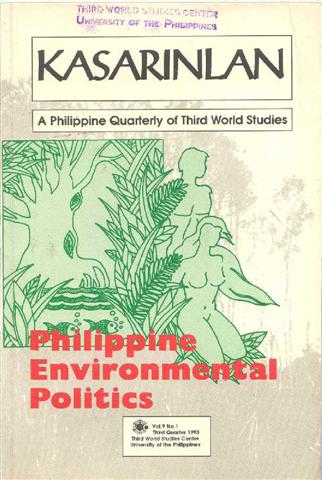The Growth of Philippine Environmentalism
Abstract
The paper traces the growth and practices of Philippine environmentalism, from the crucial years of 1970s Marcos era to the early 1990s of the Green Forum. It highlights Filipino environmentalists’ advocacy for environmental protection and effort to democratize access to natural resources. Given its legitimized and historical rights as stipulated in the Philippine Constitution, the Philippine State owns and primarily utilizes natural resources for economic purposes. It also has the power to distribute land titles. However, due to graft and corruption in the government, the State becomes weak in implementing environmental policies and ineffective in securing a healthy ecology for the people. Added to this burden is the State’s high propensity to prioritize private companies whose intents do not necessarily reflect and promote a sustainable environment development. In this dire context, conflict of interests between the State and its citizenry, especially indigenous groups, arises. Rallying issues raised against the State are displacement, embezzlement, and destruction of natural resources. Indigenous groups, environmental NGOs, and church-community groups become active in promoting and implementing sustainable development projects in communities as well as in lobbying environment policies that demand State’s equity towards its citizenry and natural resources. Another challenge is the undertaking of capacity-building measures in order to become effective participants in the local implementation of projects. Environmental NGOs and the like are expected to be technically-efficient and organizationally-competent in order to execute community-based resource management programs.
Published
2008-06-10
How to Cite
MAGNO, Francisco A..
The Growth of Philippine Environmentalism.
Kasarinlan: Philippine Journal of Third World Studies, [S.l.], v. 9, n. 1, june 2008.
ISSN 2012-080X.
Available at: <https://journals.upd.edu.ph/index.php/kasarinlan/article/view/928>. Date accessed: 28 aug. 2025.
Section
Features
Keywords
Philippine state, Environmentalism, Capacity-building, Environmental NGOs
By submitting a manuscript, the authors agree that the exclusive rights to reproduce and distribute the article have been given to the Third World Studies Center.



